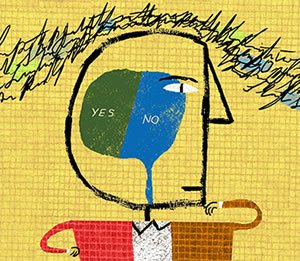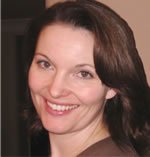2014 Edwards Psychology Lectures: The Science of Decision Making
 SAVE THE DATES for the 9th annual Allen L. Edwards Psychology Lecture Series!
SAVE THE DATES for the 9th annual Allen L. Edwards Psychology Lecture Series!
Join us for our 9th annual series as we explore the science of decision making. This popular series brings notable psychologists to the University of Washington to co-present with faculty from the UW Department of Psychology. This public lecture series is made possible by a generous endowment by Professor Allen L. Edwards, who was affiliated with the University of Washington Psychology Department from his arrival in 1944 as an Associate Professor to his death in 1994.
This year's series will explore The Science of Decision Making. Our three featured UW faculty include: Chantel Prat (Feb. 19), Jeansok Kim (Feb. 26), and Susan Joslyn (Mar. 5). Together they will reveal how the brain and an individual's expectations bias the decisions that we make in uncertain conditions.
Online registration will open on January 7, 2014 at UWalum.com/psychology. We hope to see you there!
Chantel Prat, Assistant Professor of Psychology, University of Washington
Randall O’Reilly, Professor of Psychology & Neuroscience, University of Colorado Boulder
February 19, 2014, 7-9pm, Kane Hall Room 130
The Neuroscience of Good Decision Making
 |
| Photo: Chantel Prat |
 |
| Photo: Randall O’Reilly |
Decision making is pervasive in everyday life, and individuals vary widely in their ability to use the information available to them to make good decisions. Drs. Randall O'Reilly and Chantel Prat will discuss such individual differences in decision making, with an emphasis on how various brain regions contribute to good decision making.
February 26, 2014, 7-9pm, Kane Hall Room 130
How the Brain Makes Decisions under Uncertainty
 |
| Photo: Jeansok Kim |
 |
| Photo: John O’Doherty |
Jeansok Kim, Professor of Psychology, University of Washington
John O’Doherty, Professor of Psychology, California Institute of Technology
In order to make decisions about what action to take in uncertain situations the brain needs to be able to make estimates about the future consequences of taking particular actions, and work out which is the best course of action to take in any given situation. Drs. Kim and O’Doherty will discuss how the rodent and human brains are capable of working out the “risk” and “value” of possible outcomes over the course of trial-and-error experience, and how that information subsequently gets used at the point of decision-making. Uncovering how it is that the brain makes decisions is important not only for gaining a better appreciation of what makes us tick as human beings, but also can ultimately help us to understand better what happens when people sometimes make poor decisions, such as when suffering from psychiatric illness.
March 5, 2014, 7-9pm, Kane Hall Room 130
Communicating, Understanding and Using Uncertainty Information in Everyday Decisions
 |
| Photo: Susan Joslyn |
 |
| Photo: David Budescu |
Susan Joslyn, Associate Professor of Psychology, University of Washington
David Budescu, Anne Anastasi Professor of Psychometrics and Quantitative Psychology, Fordham University
Each of us makes important decisions involving uncertainty in domains in which we are not experts, such as retirement planning, medical treatment, precautions against severe weather and climate change. We often have access to information about the relevant uncertainty that in some cases is provided by experts. These lectures will describe research that explores what people understand about uncertainty in decision making, how effectively they incorporate it into the decision process and implications for how best to communicate uncertainty information to non-expert decision makers.

